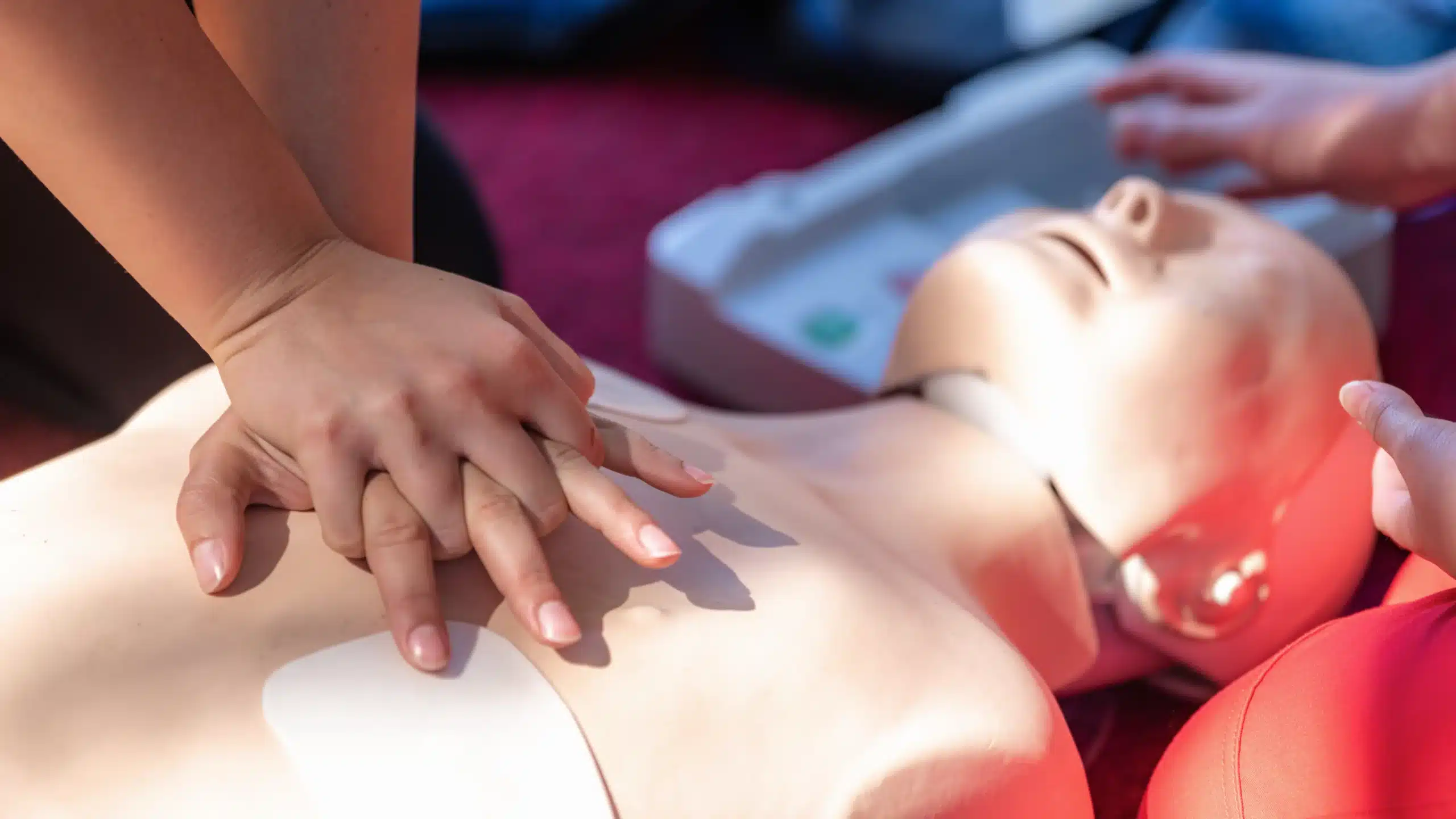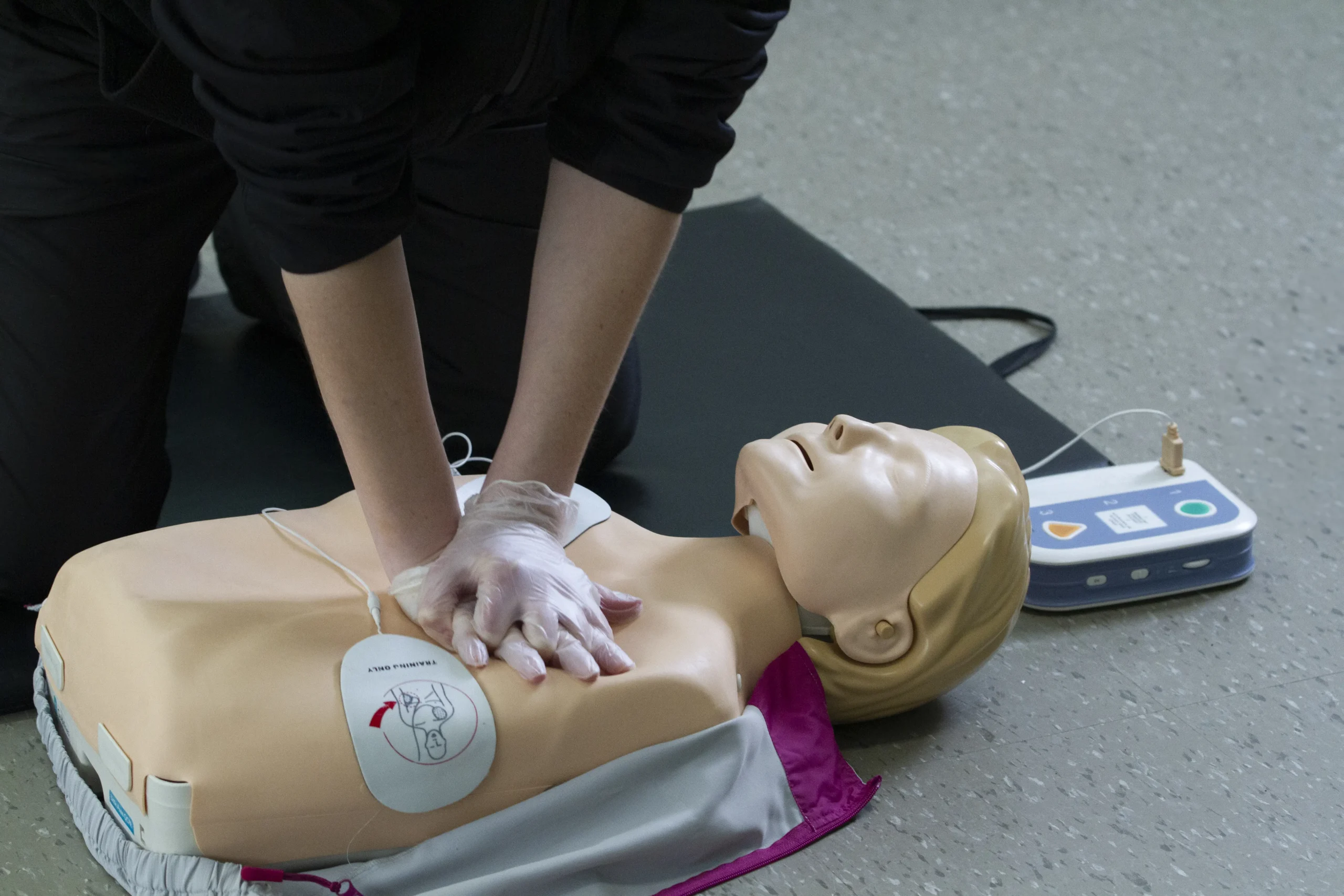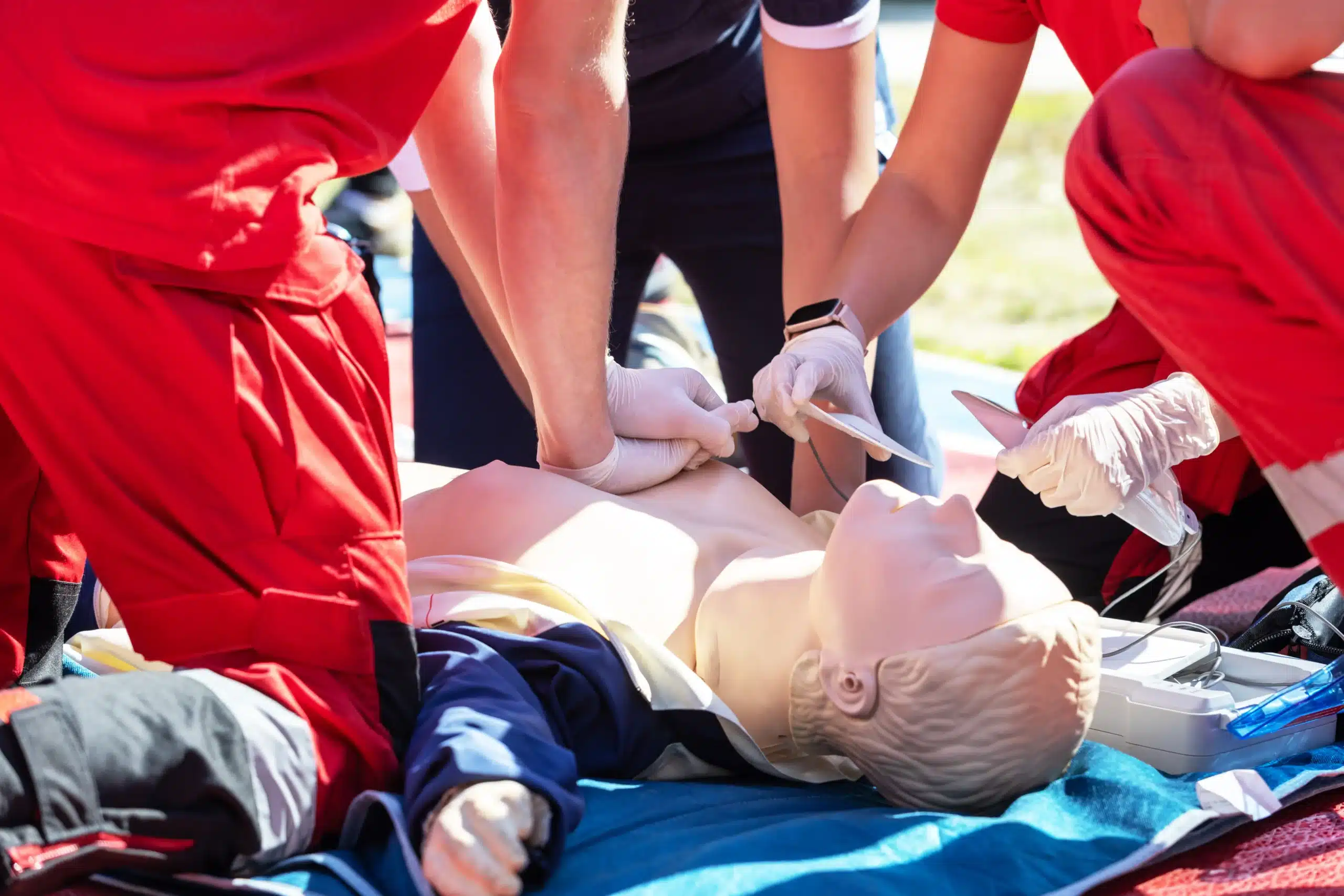Working with infants and children can be incredibly rewarding, but it also comes with a unique set of responsibilities. As healthcare providers, we know that emergencies can happen anytime, and being prepared is crucial. That’s where Pediatric Advanced Life Support (PALS) training comes in. This specialized certification equips you with the skills to confidently handle critical situations involving young patients. If you’re in the Sacramento area and looking to enhance your pediatric emergency care skills, this guide will help you find the right PALS certification course for you. We’ll cover everything from course content and cost to finding reputable providers offering pediatric advanced life support in Sacramento. Let’s get started!
Key Takeaways
- PALS certification equips you with life-saving skills. This specialized training focuses on the unique needs of infants and children during medical emergencies, giving you the confidence to respond effectively. Prioritize courses with hands-on practice and realistic simulations.
- Choosing the right PALS course requires careful consideration. Seek out AHA-certified training centers with experienced instructors. Evaluate factors like location, schedule, class size, and cost to find the best fit for your needs.
- Maintaining your PALS certification is crucial for career advancement and optimal patient care. Remember to renew your certification every two years to stay current with the latest guidelines and best practices in pediatric advanced life support.
What is Pediatric Advanced Life Support (PALS)?
What is PALS & Why is it Crucial?
Pediatric Advanced Life Support (PALS) is a specialized training program for healthcare providers who manage critically ill infants and children. The course gives you the skills to recognize and treat pediatric emergencies, from cardiopulmonary arrest and shock to respiratory distress. PALS focuses on fast, effective interventions to improve outcomes for young patients. It’s a crucial certification for anyone working in pediatrics or emergency medicine. For those in the Sacramento area, Safety Training Seminars offers PALS certification.
PALS Certification Prerequisites
Before you can take a PALS course, you’ll need a current Basic Life Support (BLS) certification. You should also have a medical background related to pediatric care. Most PALS courses also require some pre-course work, usually involving studying the PALS Provider Manual and completing a self-assessment. This prep work helps make sure you’re ready to learn and get the most out of the training. Check with your chosen PALS provider for their specific requirements. For example, you can find more information on the American Heart Association website.
Top PALS Training Providers in Sacramento
Finding the right Pediatric Advanced Life Support (PALS) course is crucial for healthcare providers. Here are some respected training centers in the Sacramento area:
Safety Training Seminars
Safety Training Seminars, a certified American Heart Association (AHA) Training Center, offers PALS certification among its various courses. With a focus on affordability, they provide accessible training with a low-price guarantee for healthcare professionals in Sacramento, Roseville, and Rocklin. They also offer other essential certifications like BLS and ACLS. Learn more about their low price guarantee.
NorCal CPR
NorCal CPR stands out as an AHA-authorized Training Center specifically for PALS in the Greater Sacramento area. They offer PALS renewal courses in Sacramento, Roseville, and Rancho Cordova, catering to healthcare providers needing to refresh their skills and maintain their certification.
Dignity Health
Dignity Health provides a comprehensive PALS course that emphasizes hands-on practice. Their training includes simulations of critical pediatric emergencies, such as CPR/AED use, cardiac and respiratory events, and shock management.
UC Davis Health
UC Davis Health is a well-known institution committed to improving pediatric emergency care. They offer PALS training as part of their commitment to providing healthcare providers with the skills to handle pediatric emergencies effectively. Visit their website to learn more.
Other Local Providers
Beyond these established centers, several other local providers offer PALS training in Sacramento. When researching, consider factors like cost, schedule flexibility, and instructor experience to find the best fit. Safety Training Seminars, for example, emphasizes its affordability, aiming to make essential training accessible. They also offer specialized courses like EMSA Child Care Health & Safety and RQI classes.
Initial vs. Renewal PALS Courses: What’s the Difference?
Choosing between an initial and a renewal PALS course depends on your current certification and experience. Let’s break down the key differences to help you decide which course best suits your needs.
Initial PALS Course: Structure & Duration
The initial PALS course offers a comprehensive introduction to pediatric advanced life support. Designed for healthcare providers encountering PALS for the first time, this two-day course typically involves about 14 hours of instruction. Expect a blend of instructor-led training and interactive elements like videos and realistic simulations. This initial PALS training builds a strong foundation for managing pediatric emergencies.
PALS Renewal Course Overview
If you’re already PALS certified and approaching your renewal date, the PALS renewal course is the right choice. Considerably shorter than the initial training, this refresher course takes a few hours, typically spread over two days. While concise, the renewal course still prioritizes hands-on practice and simulated scenarios to reinforce essential skills and update your knowledge on the latest guidelines. This overview of PALS renewal training offers a closer look at what to expect.
Key Differences: Content & Hands-on Practice
Both initial and renewal PALS courses cover core skills such as CPR/AED use and managing cardiac and respiratory emergencies. The main difference lies in the breadth and depth of the material. The initial course provides a thorough exploration of each topic, building knowledge from the ground up. The renewal course focuses on refreshing and reinforcing existing skills, ensuring you’re current on the latest protocols. Both courses emphasize hands-on learning through simulations, preparing you to confidently apply your skills in real-world emergencies. Dignity Health offers additional information on PALS training and resources.
PALS Course Content & Skills You’ll Learn
The PALS course equips healthcare providers with the knowledge and skills to effectively manage pediatric emergencies. Here’s a look at what the training covers:
BLS Review
A solid foundation in Basic Life Support (BLS) is essential for any healthcare professional. The PALS course starts with a comprehensive review of BLS skills, ensuring everyone is up-to-date on the latest guidelines for CPR, including high-quality chest compressions and effective ventilation techniques. The American Red Cross explains that completing the online portion, including the PALS Team Response Scenarios and the final written exam, is required before the in-person skills PALS training.
Recognize & Manage Critical Pediatric Conditions
PALS focuses on quickly identifying and managing critical pediatric conditions. You’ll learn how to assess a child’s condition, recognize signs and symptoms of life-threatening illnesses and injuries, and initiate appropriate interventions. This includes understanding the physiological differences between children and adults and how these differences affect emergency care. For a helpful overview of how PALS differs from other certifications like CPR and ACLS, check out this CPR Care blog post.
Cardiac Arrest Algorithms & Post-Resuscitation Care
This section covers the specific algorithms used to manage pediatric cardiac arrest. You’ll learn the systematic approach to resuscitation, including early defibrillation, medication administration, and airway management. The course also covers essential post-resuscitation care, focusing on stabilizing the child and improving their chances of recovery. ScienceDirect offers a helpful look at Pediatric Advanced Life Support and its role in medical emergencies.
Team Dynamics & Communication
Effective teamwork and communication are crucial in emergencies. PALS training emphasizes clear communication, defined roles, and coordinated efforts within the medical team. You’ll practice working together in simulated scenarios, improving your ability to communicate under pressure and provide seamless, high-quality care. Dignity Health discusses the importance of teamwork in their PALS course description. This focus on team dynamics helps ensure that everyone involved can contribute their expertise and work together to achieve the best possible outcome for the patient.
PALS Certification: Cost & Value
Earning your Pediatric Advanced Life Support (PALS) certification is an investment in your career and the lives of your young patients. But naturally, you’ll want to find a program that offers quality training at a reasonable price. Let’s break down the costs associated with PALS certification and explore the long-term value it brings.
Price Range & Cost Factors
PALS course fees vary based on location, course format (in-person vs. online or blended learning), and the training center. While online components offer flexibility, the hands-on skills practice you get with an in-person course at an AHA Training Center like Safety Training Seminars is invaluable. Safety Training Seminars offers the lowest prices for PALS certification in Sacramento, making this important training accessible.
Discounts & Promotions
Many training centers, including Safety Training Seminars, offer discounts for group registrations, students, or returning customers. Check with your chosen provider for current promotions. Look for early bird discounts or special offers around healthcare awareness weeks or months. Safety Training Seminars’ commitment to affordable training means they often have promotions, so check their website or contact them. They offer PALS courses throughout the week, which makes scheduling easier.
Long-Term Value of PALS
While there’s an upfront cost for PALS certification, the long-term value is significant. PALS gives you the skills to confidently handle pediatric emergencies. This leads to improved patient outcomes and greater confidence in your work. A PALS certification can also create opportunities for career growth and show your dedication to high-quality pediatric care. It’s an investment that benefits your healthcare career for years to come.
Instructor Qualifications & Course Quality
When you work with infants and children, choosing the right Pediatric Advanced Life Support (PALS) course is critical. You need to know your instructors have the right credentials, experience, and teaching approach to prepare you for real-world pediatric emergencies. This section explains what to look for in a quality PALS program and its instructors.
Required Credentials & Experience
PALS instructors should be certified by the American Heart Association (AHA) and hold current healthcare provider status. This ensures they’re familiar with the latest guidelines and best practices. Beyond certifications, look for instructors with real-world experience in pediatric emergency care. This translates into more relevant and engaging training. Safety Training Seminars, an official AHA Training Center, focuses on these qualifications, ensuring their instructors are both knowledgeable and experienced.
AHA Certification
After you complete your PALS course, you’ll receive an AHA certification card valid for two years. This widely recognized certification shows you’re proficient in pediatric advanced life support. Make sure the course you choose offers this official AHA certification, as other certifications may not be as valuable.
Hands-on Training & Simulations
Effective PALS training involves more than lectures and textbooks. Look for courses that include hands-on training and simulations. These practical exercises let you apply your knowledge in realistic scenarios, building confidence and competence. Simulations are essential for developing the quick thinking and decisive action needed in pediatric emergencies. Hands-on practice with pediatric-specific equipment reinforces your learning and prepares you for the specific challenges of pediatric care.
Benefits of PALS Certification
Earning your PALS certification offers significant advantages, enhancing your skills and opening doors to new opportunities. Whether you’re a seasoned healthcare provider or just starting your career, PALS can make a real difference in your professional life and the lives of your young patients.
Improve Patient Care Skills
PALS certification equips you with the specialized knowledge and skills to provide high-quality care to infants and children facing medical emergencies. Children’s physiology and responses to illness and injury differ significantly from adults. PALS training emphasizes these crucial differences, teaching you how to effectively assess, manage, and treat pediatric emergencies. This specialized training translates directly into improved patient outcomes, giving you the confidence to handle critical situations and provide the best possible care. As KT Global CPR explains in their article on the importance of PALS, the focus on pediatric-specific techniques is essential for protecting young lives.
Advance Your Career
In a competitive healthcare landscape, PALS certification is a valuable asset. Many healthcare facilities require PALS certification for positions involving pediatric care. Holding this credential demonstrates your commitment to advanced training and specialized skills, making you a more desirable candidate. Illinois Safety discusses how crucial PALS certification is for career advancement in pediatric care. It enhances your job prospects and positions you for leadership roles and greater responsibilities.
Overcome Challenges in Real-Life Emergencies
PALS training goes beyond textbook knowledge, providing hands-on experience and simulated scenarios that prepare you for real-world pediatric emergencies. These simulations build confidence and decision-making abilities under pressure, allowing you to apply your skills effectively in critical moments. CPR Louisville highlights the importance of hands-on training in their PALS courses, emphasizing building confidence for real-world situations. Mastering these skills equips you to handle the unexpected, react quickly, and provide life-saving care during critical pediatric events. The same Illinois Safety article points out that PALS training addresses the challenges healthcare workers face, including managing demanding schedules and applying pediatric-specific skills in emergencies.
Get & Maintain Your PALS Certification
Pre-course Requirements & Study Tips
Before signing up for a Pediatric Advanced Life Support (PALS) course, make sure you meet all the requirements. You’ll need a current Basic Life Support (BLS) certification and a background in pediatric care. Completing the pre-course work, including videos and quizzes, is essential for getting the most out of your class. This preparation helps you grasp core concepts before the hands-on training. For more details on PALS class requirements, ACLS Now offers helpful resources.
Renewal Process & Continuing Education
After completing your PALS course, you’ll receive an American Heart Association certification card valid for two years. Staying current with your PALS certification is crucial, especially for healthcare professionals working in pediatric emergency management. Regular renewal ensures you’re up-to-date on the latest guidelines and best practices. Illinois Safety discusses the importance of PALS certification and the challenges healthcare providers face.
Resources & Support for Healthcare Professionals
If you’re in Sacramento, Roseville, or Rocklin and seeking PALS certification, consider Safety Training Seminars. They offer affordable and flexible CPR, BLS, ACLS, and PALS courses throughout the week, including weekends, designed to accommodate busy schedules. Learn more about their courses in this Newswire feature. They also offer a low price guarantee, ensuring you receive excellent value.
Choose the Right PALS Course in Sacramento
So, you’re ready to get your PALS certification—fantastic! Choosing the right course is important, and thankfully, Sacramento has several quality options. This section will walk you through key factors to consider so you can find the perfect fit.
Factors to Consider When Choosing a Provider
First, look for a certified training center. Safety Training Seminars, for example, is an official American Heart Association (AHA) Training Center offering PALS certification along with other courses like BLS and ACLS. AHA authorization ensures the course follows the latest guidelines. You can also check out providers listed with the Sacramento Metro Chamber of Commerce. Beyond certifications, consider the provider’s reputation. Look for online reviews from past students. Finally, think about logistics. Is the location convenient? Do the course schedules work for you? These practical details can make a big difference.
Questions to Ask Before Enrolling
Before signing up, gather a bit more information. Double-check the PALS requirements to ensure you’re eligible. You’ll likely need a current BLS certification for healthcare providers. Next, ask about course formats. Does the provider offer in-person, blended learning, or online options? See what fits your learning style and schedule. Also, ask about class size. Smaller classes often mean more personalized instruction. Inquire about the instructors’ qualifications and experience teaching PALS. Finally, ask about the course fee and if there are extra costs for materials.
Make an Informed Decision
Getting your PALS certification is an investment in your career and patient care. As healthcare providers, we know preparation for pediatric emergencies is crucial. PALS training gives you the skills to handle critical situations. While certification might present challenges, the benefits are worth it. By considering these factors and asking the right questions, you can choose a Sacramento PALS course that sets you up for success.
Related Articles
- PALS Classes in Sacramento, CA – Sacramento CPR Classes
- BLS Classes in Sacramento: Your Complete Guide – Sacramento CPR Classes
- CPR Certification in Sacramento: Your Guide – Sacramento CPR Classes
- Online ACLS Classes in Sacramento: Your Guide – Sacramento CPR Classes
- ACLS HeartCode Sacramento: Your Certification Guide – Sacramento CPR Classes
Frequently Asked Questions
What are the key differences between PALS and BLS?
BLS (Basic Life Support) teaches fundamental life-saving skills applicable to anyone, while PALS (Pediatric Advanced Life Support) builds upon those skills with specialized training for healthcare providers treating infants and children. PALS delves into the specific physiological differences between children and adults, focusing on advanced interventions for pediatric emergencies. Think of BLS as the foundation and PALS as the specialized structure built on top.
How long is a PALS certification valid, and how do I renew it?
PALS certification, like many healthcare certifications, is typically valid for two years. To renew, you’ll need to take a PALS renewal course before your current certification expires. This refresher course covers the latest guidelines and reinforces essential skills.
What if I don’t have any experience with pediatric care? Can I still take a PALS course?
While a background in pediatric care is often recommended, the specific prerequisites can vary between training centers. It’s best to contact the provider directly to discuss your background and determine if you meet their requirements. Some providers may offer additional resources or preparatory materials to help bridge any knowledge gaps.
What kind of learning environment can I expect in a PALS course?
PALS courses typically blend interactive lectures, hands-on skill practice, and realistic simulations. You’ll learn the algorithms for managing pediatric emergencies and practice those skills in a safe, controlled environment. This combination of learning styles helps you understand the material and develop the confidence to apply it in real-world situations.
Why is choosing an AHA-certified training center important for my PALS certification?
The American Heart Association (AHA) sets the standard for PALS training. Choosing an AHA-certified training center ensures the course content aligns with the latest AHA guidelines and that you’ll receive a widely recognized and respected certification. This can be particularly important for career advancement and ensuring your skills meet industry standards.








